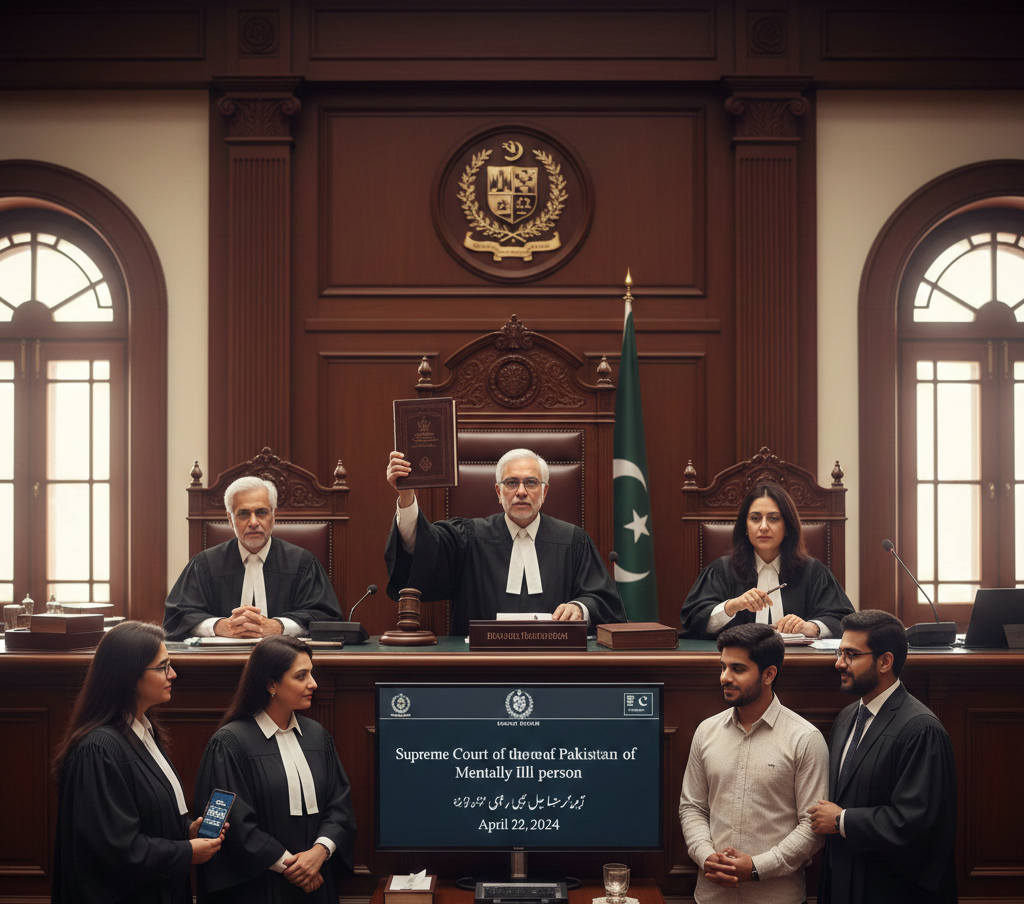Table of Contents
- Introduction to Property Rights of Mentally Ill Persons in Pakistan
- Background of the Landmark Property Case
- The Initiation of the Legal Battle for Vulnerable Heirs
- Details Regarding Invalid Property Transfers in Pakistan
- Evidence of Mental Incapacity and Land Laws
- The Failure of the Defendant to Prove Legitimacy
- Decisions Regarding Legal Protection for Unsound Mind
- The Final Verdict on Pakistan Property Fraud Cases
- Vital Legal Provisions for Vulnerable Persons
- The Broad Impact of This Judicial Decision
- Professional Legal Assistance for Civil Matters

Introduction to Property Rights of Mentally Ill Persons in Pakistan
The legal system provides specific safeguards for individuals who cannot manage their own affairs due to mental health issues. A recent and significant judgment from the Supreme Court in 2025 highlights the property rights of mentally ill in Pakistan very clearly. This case specifically addresses how the law treats transactions involving persons with an unsound mind. It reaffirms that the court must protect vulnerable citizens from exploitation by relatives or third parties through legal protection for unsound mind.
Background of the Landmark Property Case
The story begins with Mst. Yasmin Begum, a woman who suffered from chronic mental health struggles for many years. During her period of illness, she supposedly transferred her ancestral property to others. This situation created a massive legal conflict regarding the rights of mentally ill persons in . Because she could not understand the consequences of her actions, the law viewed these transactions as invalid property transfers in Pakistan.
The Initiation of the Legal Battle for Vulnerable Heirs
In 1996, her son, Syed Raza Haider, stepped forward to protect his mother’s interests. He filed a civil suit under the specific rules designed for rights of vulnerable heirs. He argued that his mother lacked the mental capacity to sign away her rights. Furthermore, he claimed that family members took advantage of her condition to seize her land and assets, which is a common theme in Pakistan property fraud cases.
Details Regarding Invalid Property Transfers in Pakistan
The disputed assets included significant holdings in different areas. The case involved agricultural land located in Chichawatni which someone claimed as a gift. Additionally, the case focused on a share of a house in Lahore. The defendants claimed they acquired this share through a general power of attorney. These documents formed the core of the legal dispute regarding the rights of mentally ill persons in Pakistan.
Evidence of Mental Incapacity and Land Laws
To win the case, the son presented detailed hospital records and medical history. These documents proved that Yasmin Begum suffered from epilepsy and chronic mental illness for a long duration. According to mental incapacity land laws, these records clearly showed that she lacked the competence to make financial or legal decisions. Therefore, the court focused heavily on whether she truly understood the documents she signed.
The Failure of the Defendant to Prove Legitimacy
The main defendant, who was a sibling, could not provide a solid defense. He admitted during the trial that he never paid any money for the land in question. His testimony contained many contradictions and lacked supporting documentation. Because he could not prove a fair and honest transaction, his claims regarding the property rights of ill persons in Pakistan began to crumble under legal scrutiny.
Decisions Regarding Legal Protection for Unsound Mind
The legal journey moved through several stages before reaching the highest court. First, the Trial Court ruled in favor of Yasmin Begum and her son. Later, the Appellate Court upheld this decision after reviewing the evidence. Finally, the Lahore High Court dismissed the further appeals from the defendants, confirming that the initial rulings provided the necessary legal protection for unsound mind.
The Final Verdict on Pakistan Property Fraud Cases
The Supreme Court of Pakistan delivered its final ruling on April 22, 2024. The judges accepted the medical proof regarding the unsoundness of mind of the owner. They rejected the validity of the power of attorney and the subsequent property transfers. Consequently, the court declared the entire transaction void and restored the property rights of mentally ill persons in to the rightful owner.
Vital Legal Provisions for Vulnerable Persons
Several important laws protect the property of mentally ill persons in Pakistan. The Code of Civil Procedure ensures that guardians can sue on behalf of those with mental incapacity. Additionally, the Specific Relief Act allows courts to cancel fraudulent or unfair documents. These laws work together to prevent people from using legal loopholes to steal land from the weak.
The Broad Impact of This Judicial Decision
This judgment serves as a powerful warning to anyone who tries to misuse a power of attorney. It sets a strong precedent that courts will always look for “bona fide” or honest intentions in property deals involving mental incapacity land laws. Most importantly, it ensures that mental illness does not lead to the loss of a person’s life savings or ancestral home.
Professional Legal Assistance for Civil Matters
Navigating complex property disputes requires the expertise of a seasoned professional. If you face issues regarding land fraud or the misuse of legal documents, you need reliable advice. For professional assistance with law services and related legal matters, contact: call any time Muhammad Amin, Advocate
📞 Phone: 0313-9708019
📧 Email: muhammadaminadvo111@gmail.com.
